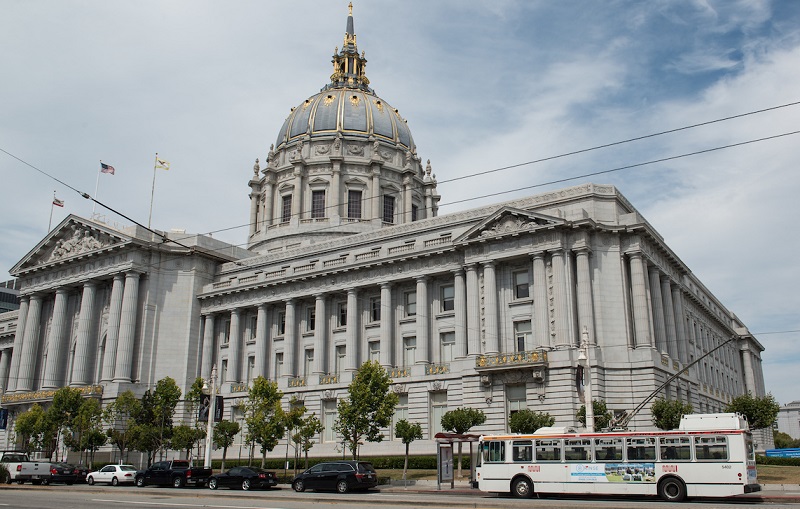This is a basic recap of items voted on and discussed by the SFMTA Board of Directors at its most recent meeting. SFMTA board meetings are usually held on the first and third Tuesdays of each month, and agendas are posted on the board’s webpage under “meetings” 72 hours in advance.
This list only includes items featured on the “Regular Calendar” section of the board agenda. See the full agenda for presentation materials and the rest of the items, which include routine board business, general public comment and “Consent Calendar” items, which are scheduled for a single vote without discussion.
You can also watch a video of this meeting and past SFMTA board meetings on SFGovTV.
Item 11: Geary Bus Rapid Transit
Approving the Geary Corridor Bus Rapid Transit Project; and concurring in the SFCTA’s determination that the Hybrid Alternative/Staff-Recommended Alternative is the Locally Preferred Alternative for the Geary Corridor Bus Rapid Transit Project; and adopting the CEQA Findings and Statement of Overriding Considerations for the Geary Corridor Bus Rapid Transit Project Final EIR, and adopts the Mitigation and Monitoring Reporting Plan.
The board approved the Geary Corridor Bus Rapid Transit Project, which will make the streets along Muni’s 38 Geary route safer and more efficient with upgrades like sidewalk extensions, transit-only lanes, transit boarding islands and new traffic signals.
The improvements will be installed in two projects: initial improvements under the Geary Rapid Project will first be constructed on Geary and O'Farrell streets, between Market and Stanyan streets, starting in 2018. Later, the Geary Boulevard Improvement Project would bring longer-term improvements west of Stanyan to 34th Avenue.
Item 12: Two-Way Traffic on Two Blocks of Eddy Street
Approving a traffic modification to convert Eddy Street between Leavenworth Street and Mason Street from one-way to two-way traffic as follows:
A. ESTABLISH – TWO-WAY STREET – Eddy Street, between Mason and Leavenworth Streets
Eddy Street carries two-way traffic on its entire length except for its three easternmost blocks, between Mason and Leavenworth streets. The board approved a redesign (PDF) for those blocks of Eddy to be converted from its one-way traffic configuration (eastbound) to a calmer, two-way configuration.
Item 13: Guiding Principles for Emerging Mobility Services and Technologies
Approving the Guiding Principles for Emerging Mobility Services and Technologies that will serve as a goals-based policy framework for assessing the benefits and impacts of these services and technologies, evaluating their ability to meet citywide goals, and providing guidance with respect to meeting these goals.
The board approved the Guiding Principles for Emerging Mobility Services and Technologies policy framework (PDF). This is a guideline document, developed based on relevant city policies, which city agencies can use to plan for and help shape the way our city manages new types of transportation services and vehicles that emerge from technological innovations. The guiding principles include safety, transit priority, equity, accessibility and sustainability.
Item 14: A Permanent Program for On-Street Vehicle Sharing
Adopting the Vehicle Sharing Parking Permit Policy to guide SFMTA’s vehicle sharing program; amending Transportation Code, Division II to make permanent existing On-Street Vehicle Sharing Parking Permit requirements, revise the definitions used for permit program terms, existing parking permit fees, and terms and conditions for the parking permit program.
The board approved a permanent On-Street Shared Vehicle Parking Permit Program to dedicate curbside parking spaces to be used by vehicle sharing services. These spaces have been around for a few years as part of an SFMTA pilot program, but the new program provides a permanent framework to expand them with public input. The main change is that on-street permits will no longer be available to "peer-to-peer" vehicle sharing services – only to dedicated fleets of organization-owned shared vehicles.
